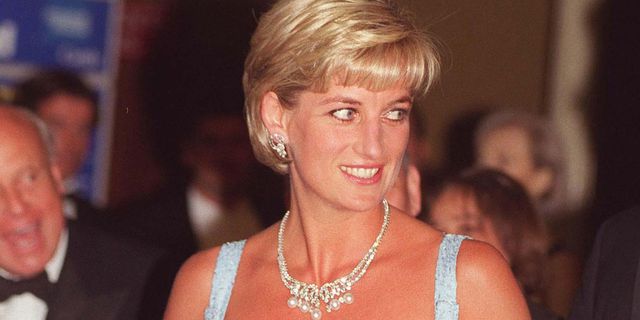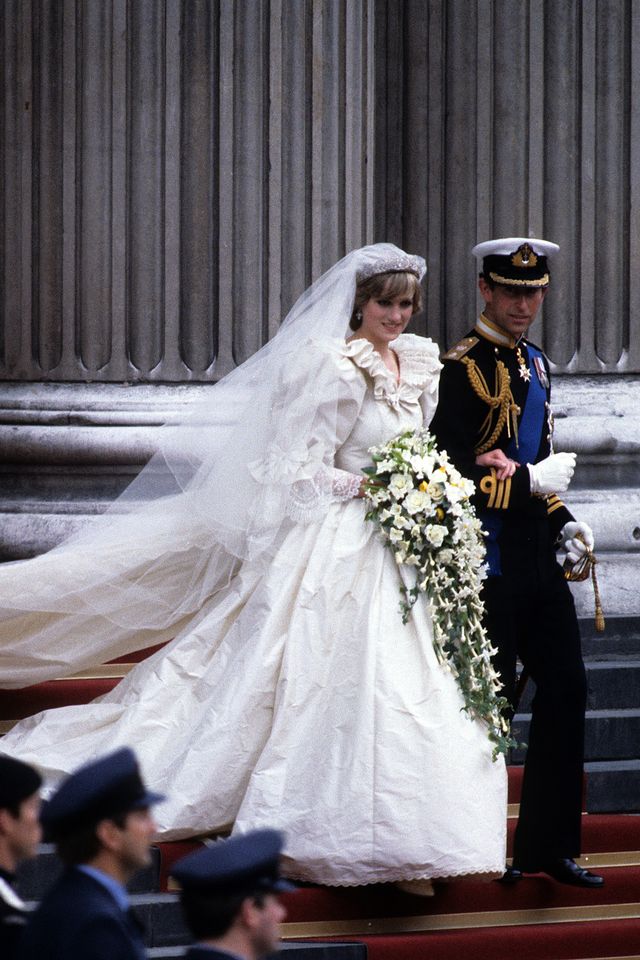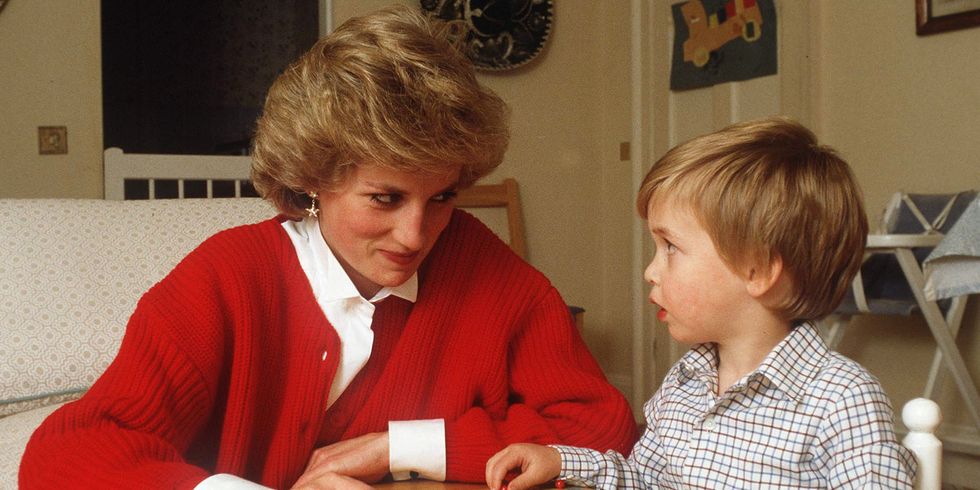Princess Diana's death—sudden and far from home—was memorable, tragic, and era-defining. At the time of the car accident in Paris that claimed her life, Diana had already been designated "The People's Princess": a royal who deigned to walk among the populace, a tabloid dream. She was the media's favorite subject, possibly the most famous woman in the world, and a celebrity whose popularity irrevocably changed how celebrities were seen, thought of, and talked about. Now, just as the twentieth anniversary of her death, on August 31, has passed, several documentaries have sprung up to revisit her life. Yet while there are many narratives being offered anew to the still loving, still voracious fans of the once Diana Spencer, are they really saying anything new?
Of course, to be successful, entertaining, or even watchable, there's no need for such programs to add a different angle or new knowledge to the conversation. Just as she was a boon for newspaper circulation during her life—The Sun's former night editor, Fergus Shanahan, went so far as to call photographs of her a "goldmine"—Diana's star has not waned in 2017. Headlines, TV programming, and even new editions of old books are still dedicated to her story today. But the question of how best to remember Diana is an important one, and not merely because two decades on, we're still fascinated by her story, her deeds, and her persona. In order to honor a woman whose personal life was ceaselessly exposed by her public position, and increasingly by the media after she married Prince Charles at just 20 years of age, wouldn't it be most decent to focus on coverage that wouldn't embarrass her and her family?
Such coverage isn't guaranteed, though, especially when so many narratives crowd the airwaves. From CBS's Diana: Her Life, Her Death, Her Truth, hosted by Gayle King, which gazed upon her legacy as early as May of this year, to ABC's The Story of Diana and National Geographic's Diana: In Her Own Words, major networks made sure to secure their own tentpole examinations of the Princess of Wales. Smithsonian took a more specific angle in Diana and the Paparazzi, while NBC's Diana, 7 Days retraced the steps of royals, their friends, and their staff as they dealt with the sadness and responsibilities that fell upon them in the week after she died.
This proliferation of Diana tales simply follows the tradition of ravenous documentation by media outlets and consumption by fans of her life, and even her death (in Diana, 7 Days, Prince Harry says that photographers were seen snapping shots as his mother lay, still alive but grievously wounded, on the car seat in Paris). Royals have always had more than other people—in terms of wealth, cultural capital, and public tradition—and so their subjects have always demanded a lot from them. With Diana, that demand rose to dangerous levels, not only in the infamous car chase that led to her death, but also in a way that gutted her own happiness, even after her divorce from Prince Charles: "Very sadly, a lot of my memories revolve around trying to cheer her up," Prince William recalls in 7 Days, "and I believe she cried more due to press intrusion than anything else in her life."
If there is a way to differentiate between the several TV takes on her life, perhaps it's by prioritizing those that involve her sons, William and Harry, and thereby have the tacit approval of her royal family. 7 Days and HBO's Diana, Our Mother: Her Life and Legacy both feature the princes as talking heads, and their testimony is frank and intimate; in Our Mother, Harry and William construct a portrait of Diana as being "jolly," loving, naughty. "She was the best mum in the world," Harry says, with touching boyishness. Yet their messaging also seems to have a purpose in each case; William's description in 7 Days of one group of paparazzi as a "pack of dogs" who spat at Diana and called her names, and his pointed mention of the privacy the young princes enjoyed as children make a clear point. Similarly, HBO's documentary devotes time to Harry's continuation of his mother's charitable work, and highlights the groundbreaking commitment Diana had to people affected by AIDS and landmines.
The value of new observations by the princes is obvious, whether it can be considered "news" or not, but can any of the other offerings give us anything truly novel? In the UK, an anniversary documentary based on tapes made by Diana's speech coach, Peter Settelen, caused controversy and was called "ghoulish," on the basis that the recordings weren't made for public consumption. But even these are not truly new; in the US, portions of those tapes have aired before, and both National Geographic and PBS's Diana: Her Story are based on the same source material. That's not to say it isn't unethical to screen or watch productions of their kind, but they certainly stand in shadowy contrast to material differentiated by the princes' implied imprimatur.
Of course, finding out something new about Diana isn't the only reason someone might want to watch a two-hour special about a charismatic, beloved historical figure who really did change the outward face of the English monarchy and celebrity reporting. Many will have watched these shows to remember her inspiring commitment to social issues, her beauty, her iconic style, and her romantically tragic story—and that's okay.
Despite their ubiquity, television memorials aren't the only tributes that have appeared in recent weeks. There have also been the typical "out of the woodwork"–style revelations and reflections—like the one from a French firefighter who claims to have heard Diana's last words, and that from the designer of her iconic wedding dress. Then there are the more personal remembrances from Diana's friends, including Sir Elton John.
Indeed, the freshest statements surrounding the anniversary have not been novelties eked out from ever less close associates and friends, or prised problematically from video archives. Writer Ashley Ford penned a beautiful essay that struck a chord with many readers, about growing up among black American women who adored the princess. "I still don't have a definitive reason why the older Black women in and around my life loved Diana so much," Ford writes. But perhaps it was because, according to Ford's own mother, they "could see the pain in her spirit, and it spoke to us." Novelist Hilary Mantel dissected the myth of Diana in a way that splayed the public's need for a "creature 'painted and damned and young and fair'" wide open.
If we can take Diana's legacy as a mirror and see ourselves in it, would what we see there be a contribution to the world, a mark of profound empathy and humanity—or something that only detracts away from what she gave us?
Prince William said of the princes' contribution to Diana—Our Mother, "We won't be doing this again. We won't speak as openly or publicly about her again." It's the sound of a door being firmly closed against further requests or speculation. Certainly, it seems like we have all the information about the late princess that we could ever need. And whether we use that for good—to appreciate her fortitude and charitable nature, whether publicly or privately, and perhaps shore up our own—or evil is totally up to us. She had already given more of herself than she wanted.















